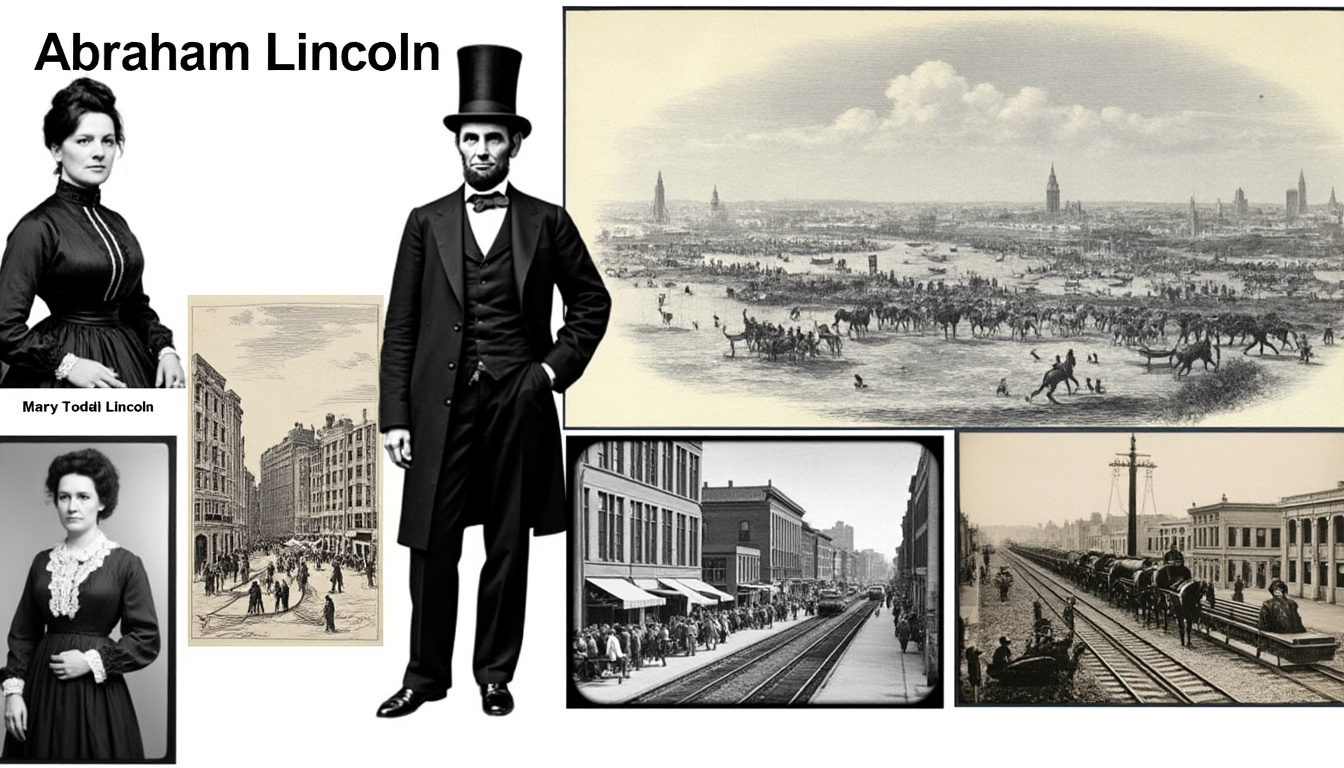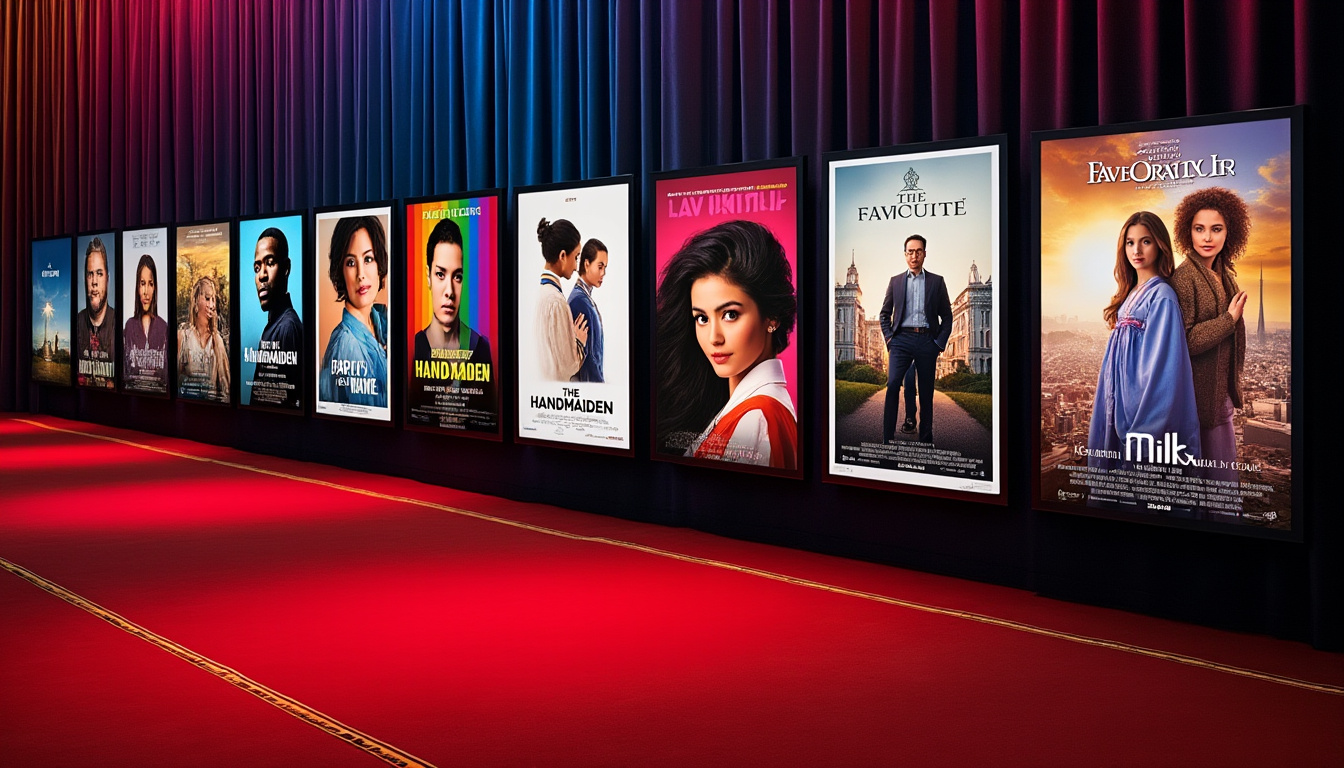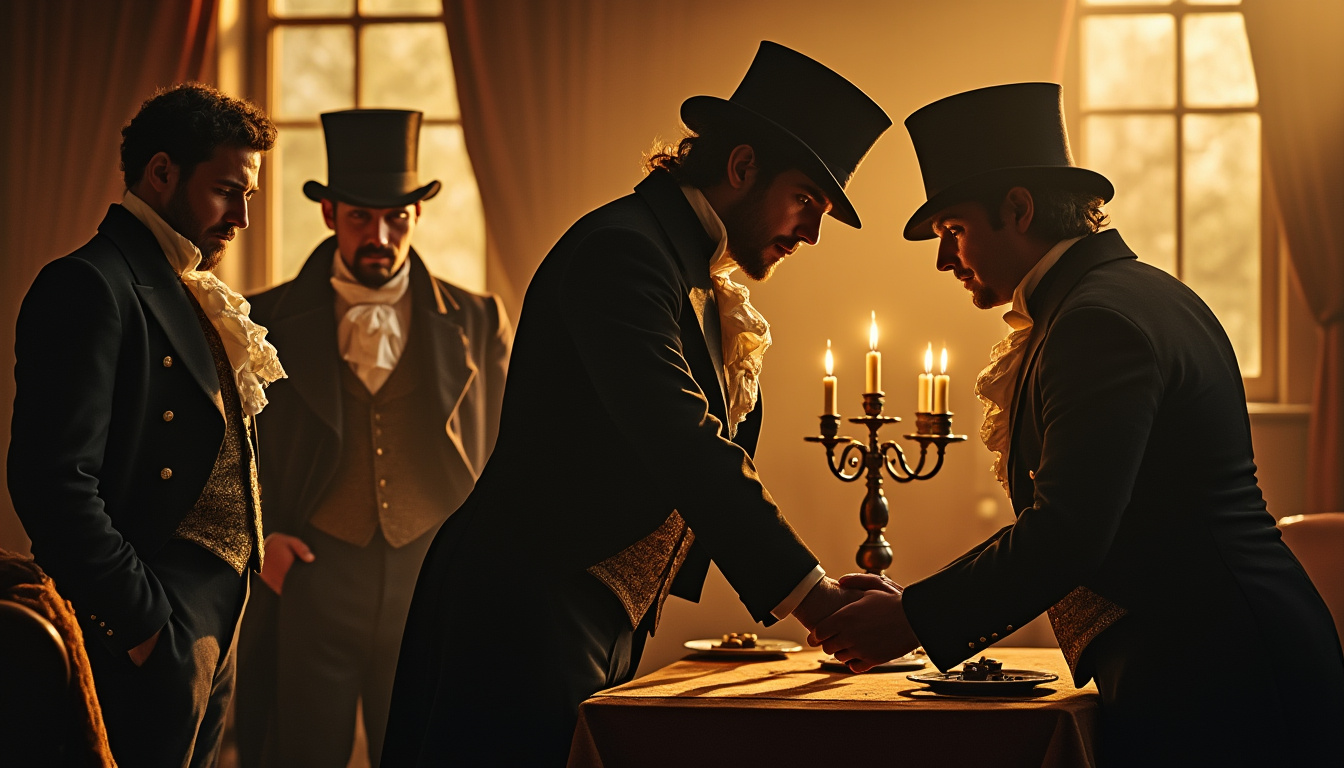The landscape of historical narratives is continuously evolving, especially when it intersects with the personal lives of iconic figures. One such narrative takes center stage in the upcoming film Lavender Men, a project that ambitiously delves into the exploration of Abraham Lincoln‘s potential secretive relationships with men. While Lincoln’s marriage to Mary Todd has been well-documented over two decades until his tragic assassination by John Wilkes Booth, discussions around his sexuality are surfacing anew through this poignant biographical film.
This innovative project, based on Roger Q. Mason’s acclaimed stage play, questions historical assumptions and shines a light on LGBTQ+ narratives that are often overlooked. The trailer for Lavender Men invites audiences to reflect deeply on the complexities of Lincoln’s personal life, making it both a bold artistic statement and a crucial piece of contemporary discourse.
Unveiling Lincoln: The History Behind Lavender Men
The narrative surrounding Abraham Lincoln’s sexuality has sparked much debate, with various interpretations surfacing in documentaries and other formats. A notable entry in this area is the 2024 documentary, Lover of Men: The Untold History of Abraham Lincoln, which spearheaded discussions about whether the iconic president was gay, attracting both acclaim and criticism. This growing interest serves as the backdrop for the Lavender Men, a film that intricately weaves together historical fact and imagination.

The idea of secretive relationships posits Lincoln not merely as a Civil War president but also as a man with emotional needs and possible romantic inclinations beyond his marriage. Through the lens of LGBTQ+ representation, Lavender Men seeks to challenge the traditional narratives that have often excluded the complexities of historical figures’ personal lives.
The creators behind Lavender Men: Visionaries at Work
Director Lovell Holder, alongside co-writer Roger Q. Mason, have infused their shared experiences and unique perspectives into Lavender Men. Having known each other since youth, their combined efforts bring authenticity and passion to the project. “I never imagined in 2025 we’d officially release this feature film adaptation,” said Holder. His commitment resonates throughout the project, reflecting a love for the narrative and a desire to inspire the LGBTQ+ community.
The film was produced on a modest budget in just ten days, showcasing the dedication of its creators. This not only emphasizes the artistic merit but also the necessity for stories that confront contemporary issues while honoring historical context. Holder expressed his hope that the film “serves as a rally cry, a fountain of joy, and a grounding of purpose for the LGBTQIA+ movement”—words that reflect the film’s larger vision.
Lavender Men Trailer: A Glimpse into Lincoln’s Mind
The trailer for Lavender Men opens with Taffeta, the lonely stage manager played by Roger Q. Mason, illustrating their internal struggles as they craft a play about Lincoln. This character grapples with the overarching narrative around Lincoln’s identity and taps into imaginative fantasies about his possible male suitors, particularly a legal aide named Elmer Ellsworth. The creativity displayed hints at deeper emotional undercurrents while also offering a humorous critique of historical storytelling.
Taffeta’s inventive representations lead to a performance that interrogates societal norms of masculinity and love. The vibrant range of characters they portray—from an army cadet to Mary Todd—creates a rich tapestry of perspectives, expertly challenging the audience’s understanding of identity and relationships.
- Key Themes in the Trailer:
- Imagination vs. reality
- The concept of hidden love
- LGBTQ+ representation
- Imagination vs. reality
- The concept of hidden love
- LGBTQ+ representation
- Inspirational Quotes:
- “You can be anything. You can be anyone.” — Taffeta
- “Anything is possible.” — Taffeta
- “You can be anything. You can be anyone.” — Taffeta
- “Anything is possible.” — Taffeta
Reception of LGBTQ+ Narratives in Historical Films
As Lavender Men prepares for its limited release on May 2nd in major cities like Washington D.C., Los Angeles, and New York, it joins a growing cadre of films that tackle historical figures with an LGBTQ+ lens. The film landscape, especially in 2025, is more open to exploring themes of sexuality and identity than ever before. This trend acknowledges the importance of diverse narratives in films and documentaries, paving the way for more inclusive stories.

Recent Examples of LGBTQ+ Historical Films
| Film Title | Release Year | Focus |
|---|---|---|
| Lover of Men | 2024 | Exploration of Lincoln’s sexuality |
| Carol | 2015 | lesbian romance in the 1950s |
| Milk | 2008 | Life of Harvey Milk |
| Portrait of a Lady on Fire | 2019 | Queer love in the 18th century |
These films exemplify a broader cultural shift towards embracing LGBTQ+ narratives, challenging audiences to reconsider past events through a contemporary lens. The impact of this trend not only enriches film culture but also reinforces the necessity of reclaiming marginalized voices in historical discussions.
The Societal Impact of Lavender Men
As we witness the release of Lavender Men, it becomes clear that cinematic explorations of historical figures can reverberate through society in profound ways. Films like this serve not only to entertain but also to educate and provoke thought about societal norms and personal identity. The film offers a lens through which audiences can reevaluate their understanding of figures like Lincoln, recognizing their multifaceted humanity.
Revitalization of Historical Discourse
Lavender Men seeks to reinvent the discourse surrounding historical narratives by embedding sexual identity into the broader conversation about American history. By confronting accepted truths and encouraging open dialogue, the film becomes a beacon for those who feel encompassed by narratives that do not mirror their truth.
- Potential societal impacts include:
- Increased visibility of LGBTQ+ stories in media.
- Encouragement for historical inquiry into marginalized narratives.
- Promotion of acceptance and understanding of diverse identities.
This revitalization might foster more profound reflections on contemporary LGBTQ+ rights struggles, enabling audiences to draw parallels between past and present experiences.
Lavender Men: Next Steps in the Journey
As anticipation builds for the release of Lavender Men, it’s essential to consider the future of LGBTQ+ narratives within historical contexts. Would we see more films like this paving the way for storytelling that captures the complexities of individuals often seen as one-dimensional figures in textbooks?
What Lies Ahead for LGBTQ+ Cinema
The success of films such as Lavender Men may very well inspire a wave of storytelling that emphasizes the rich tapestries of personal identities across history. The potential for change in how history is narrated is immense, provided there is continued support for diverse stories in film and theater. Audiences should not only celebrate productions that move us but also engage with and support various cultural projects aiming to amplify the LGBTQ+ voice.
As we look toward 2025 and beyond, it remains crucial for filmmakers to embrace their creative freedom, challenging norms and pushing boundaries. Films like Lavender Men are more than just stories; they can become catalysts for societal change, encouraging us all to reflect on the stories we tell and whom we give voice to.
For further insights on Lavender Men and its creators, visit Brooklyn Rail’s Feature highlighting the creative journey behind the film.


